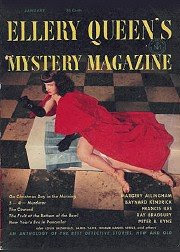A Rough Edges Rerun Review: Loser Friendly - Jake Cassidy
-
New Pulp Publishing is a new small press producing primarily e-books
(although printed copies are available, too), in a variety of genres. As
their webs...
5 hours ago










